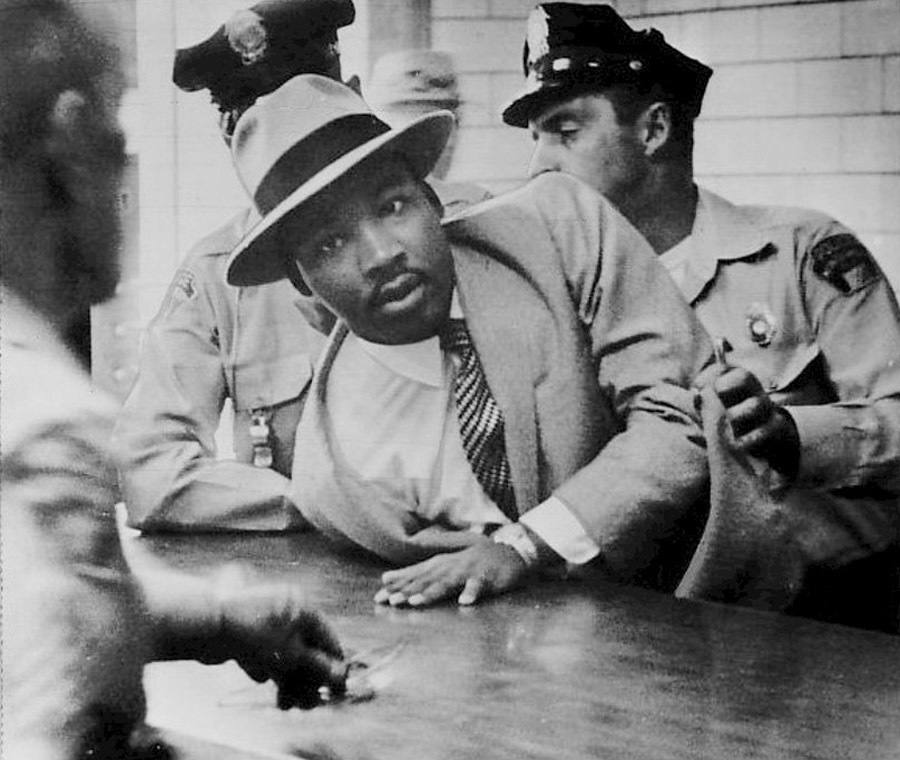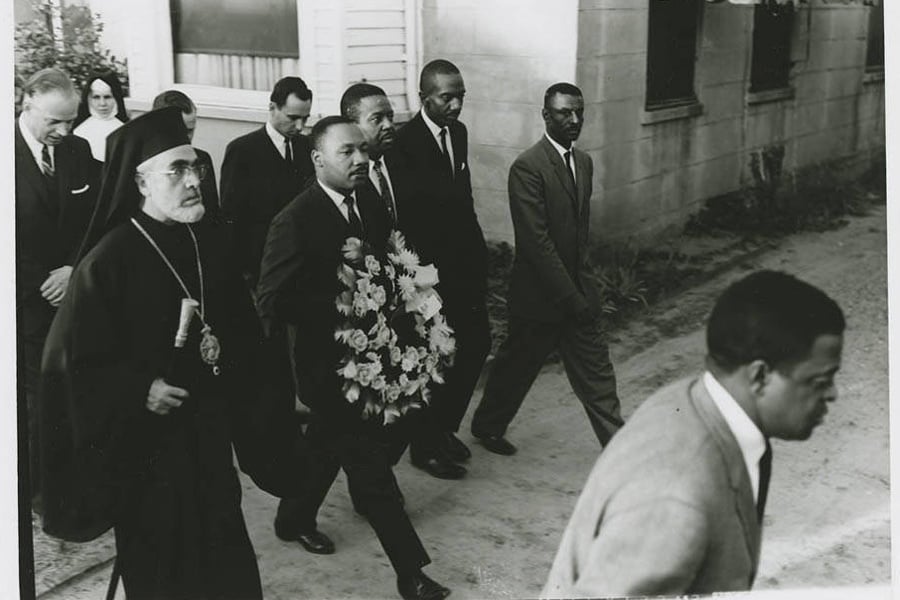
An arrest of Martin Luther King, Jr. in 1958, accused of loitering. Image Source: Wikimedia Commons
That’s not to say that legislative shifts signaled cultural change overnight. In fact, things got considerably worse after they got legally better. Five black churches were bombed after the city passed an ordinance allowing black citizens to sit where they wished on buses, and snipers fired into buses, one shattering a pregnant African American woman’s legs. White men attacked a black teen as she was leaving the bus, and shots were fired into Martin Luther King, Jr.’s home.
In conjunction with the increased violence, newly-passed city ordinances strengthened segregation elsewhere, deeming it “unlawful for white and colored persons to play together, or, in company with each other…in any game of cards, dice, dominoes, checkers, pool, billiards, softball, basketball, baseball, football, golf, track, and at swimming pools, beaches, lakes or ponds or any other game or games or athletic contests, either indoors or outdoors.”
Likewise, a grand jury sentenced King to over a year in prison for his part in the boycott, but he only served two weeks and paid a $500 fine. Parks ended up leaving Montgomery to escape death threats and avoid employment blacklisting, and historians have noted that most African Americans had returned to the habit of riding in the back of the bus by 1963, even though they weren’t required to. The movement still had a lot more work to do, and it expanded.
That same year, King delivered his famous “I have a Dream” speech at the March on Washington. Two years later, he helped organize the March on Selma. The movement, emblazoned by the mundane acts of a few, would go on to accomplish a string of victories.

Martin Luther King, Jr. during the March on Selma. Image Source: Flickr
As we commemorate these achievements with particular fervor this month and despair at contemporary injustices that have so far eluded similar social movements, it’s important not to lose hope. As the Freedom Walkers have shown, it’s the small steps that effect systemic change.
If you enjoyed this, be sure to check out the story of Don Diamond, a civil rights warrior in the suburbs, as well as these surprising facts about Martin Luther King, Jr.





